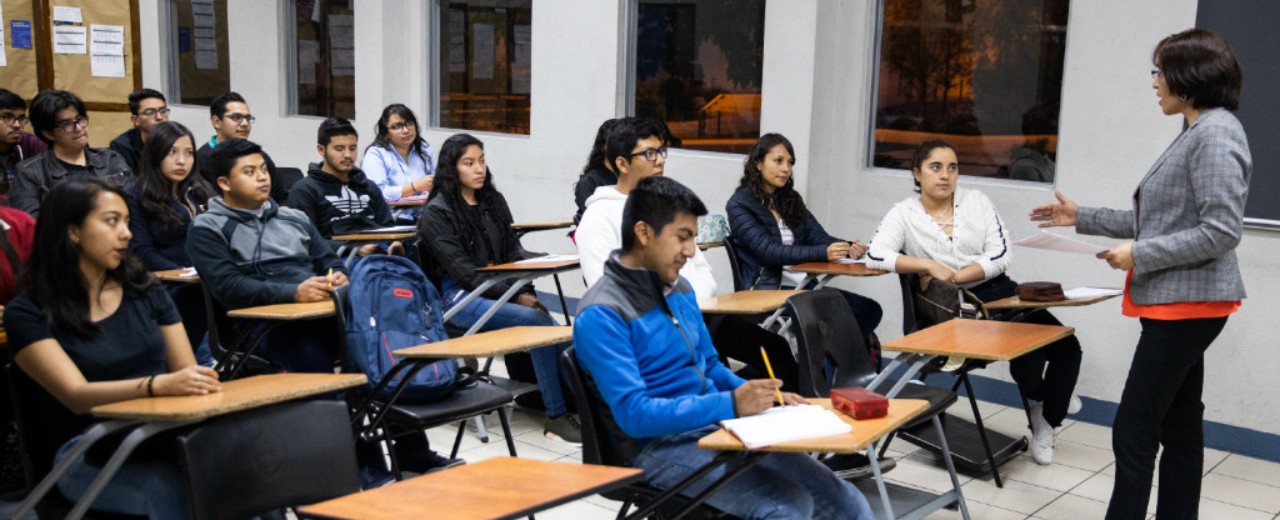
Family comes first in Guatemala. Successful pupils, especially those from poorer families, often choose not to study. For them, contributing to family income is more important than educating themselves – even though education provides a long-term way out of poverty.
A mentoring programme therefore supports scholarship holders at the Jesuit University Rafael Landívar in Guatemala in addition to financial support. The mentors will not only advise on academic issues, but also on finding accommodation, dealing with money and health problems.
Since 2019, KfW has been promoting this programme on behalf of the German Federal Ministry for Economic Cooperation and Development (BMZ). To date, 664 scholarships have been awarded, 70% of them to women. Particular attention is being paid to young people from rural areas. Half of the recipients are indigenous. Until now, this population group has been under-represented in the country’s universities.

The fears of the unknown academic world and the responsibility for the family are putting many of the scholarship holders under pressure. They find it selfish to advocate for their own education instead of supporting the family, for example through work that generates income instantly. That is why mentors are so important: they discuss these concerns with the mentees or their parents. This is proving successful: the drop-out rate among students with scholarships is 10%, compared to the university-wide average of 40%.
The project is now being expanded and is also intended to make it easier for people to start their careers in 2025/2026 by offering them career guidance. Scholars will learn about their personal strengths and find out which professions are most likely to be of particular interest to them. It provides training in soft skills, technical skills, and entrepreneurship to help promising students succeed on the labor market and lift their families out of poverty.
Share page
To share the content of this page with your network, click on one of the icons below.
Note on data protection: When you share content, your personal data is transferred to the selected network.
Data protection
Alternatively, you can also copy the short link: https://www.kfw-entwicklungsbank.de/s/enzB1vrO
Copy link Link copied